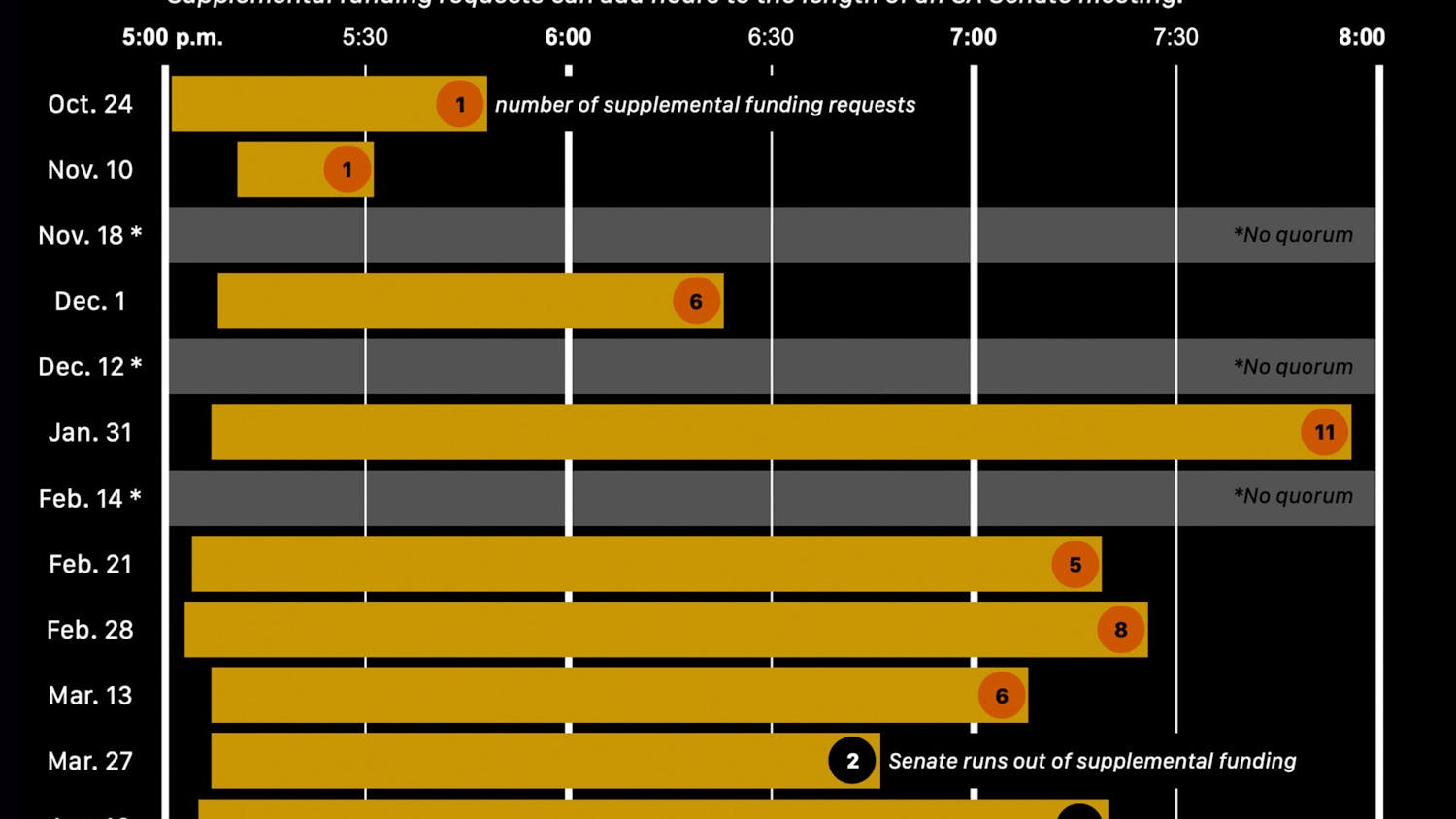The university’s expenditures will exceed its revenue for the next three years, Provost Charles Zukoski and Laura Hubbard, vice president for finance and administration, said at Wednesday’s Faculty Senate Executive Committee meeting.
UB’s operating budget for 2018-19 is $760 million, according to Hubbard. While it may seem like a large budget, after distributing it between various outlets such as research, capital projects and renovations, the university will be operating on a deficit.
UB’s carry forward balance is roughly $171.1 million for 2017-21, which will be distributed between six outlets, including academic program support, renovation projects and research.
Hubbard said this is a normal event that all large universities experience while growing. She said the school has invested resources in enrolling more students while increasing faculty salaries and renovating and expanding the school. These factors on top of tightened funds from the state are hurting UB’s annual budget, Hubbard said.
“That tells you we have an unsustainable path ahead of us that we have to address. What is driving that? Much of the new tuition revenue comes with additional costs,” Hubbard said. “Every time that we grow enrollment, increasingly we’re getting squeezed on the capital budget … also salary increases. We want to remain competitive for new hires and retaining professors, but those increases aren’t being funded by the state. So as we receive increased tuition revenue, they’re not enough to keep pace with those costs.”
Hubbard said the university had three requests totaling $109.7 million in potential investment this year. But UB only has $34.8 million from the state to invest during the next three years. Hubbard said it can be difficult to pass up investment opportunities, but she can’t do anything about it if the university doesn’t have the necessary funds.
“We want to be financially conservative because we’d hate to pass up a good opportunity,” Hubbard said. “Unfortunately, given our current situation, that might be the case until we can level the field between our expenditures and revenues.”
Zukoski said growing the university’s student body comes at a price. Although more first-year students are being admitted every year, the revenue from their tuition is disappearing into investments in new buildings and renovations to already existing buildings.
“This is the third year now that we’re bringing in over 4,000 first year students. If you play that out over the next three years, we plan to add to that by 2,000,” Zukoski said. “We’re not necessarily making money off of all of these students, we’re paying for them to learn here. As we keep taking in all of these students, there are a lot of fees associated with that. We also have to keep an eye on the mix of international and domestic students, as enrolling one international student costs the same as three domestic.”
With the tension of budget strains came hope for student activists pushing for increased awareness of resources available for students on campus.
Student Association President Gunnar Haberl proposed two revisions at the meeting –– one on mental health, the other about sexual harassment and violence prevention –– for all undergraduate student syllabi starting in the fall of 2019.
The Undergraduate Student Association and Sharon Nolan-Weiss, director of equity, diversity and inclusion, are sponsoring the statements, which include adding the phone numbers of offices, such as Counseling Services and Student Health Services to class syllabi.
“There are a lot of resources here at UB. The problem is that we’re such a large institution that students don’t know how to get those resources or where to go,” Haberl said. “Other major universities are making it mandatory to include syllabi statements regarding mental health or counseling services or sexual assault and harassment prevention. Since every student gets a syllabus, it ensures that every student will have the resources to seek help if they need it.”
Promoting mental health awareness on campus has been a high priority for Haberl, who discussed the topic frequently in his platform for president. The proposal received positive feedback from many senators at the meeting. Senator Jurriaan de Jong proposed working with the Graduate Student Association to include the statements on graduate syllabi as well.
Senate Chair Philip Glick supported the movement and motioned to send the two statements to the academic policies and grading committee to be “promptly evaluated and sent back to the executive committee for recommendation.” It passed with a unanimous vote.
At the end of the meeting, Zukoski provided an update on the Boldly Buffalo campaign, which has already raised 70 percent of its goal. Zukoski said the university will reach its goal of raising $650 million by 2020.
The next Faculty Senate meeting is next Tuesday, Sept. 18 at 3 p.m. at the Center for Tomorrow.
The News Desk can be reached at news@ubspectrum.com.





